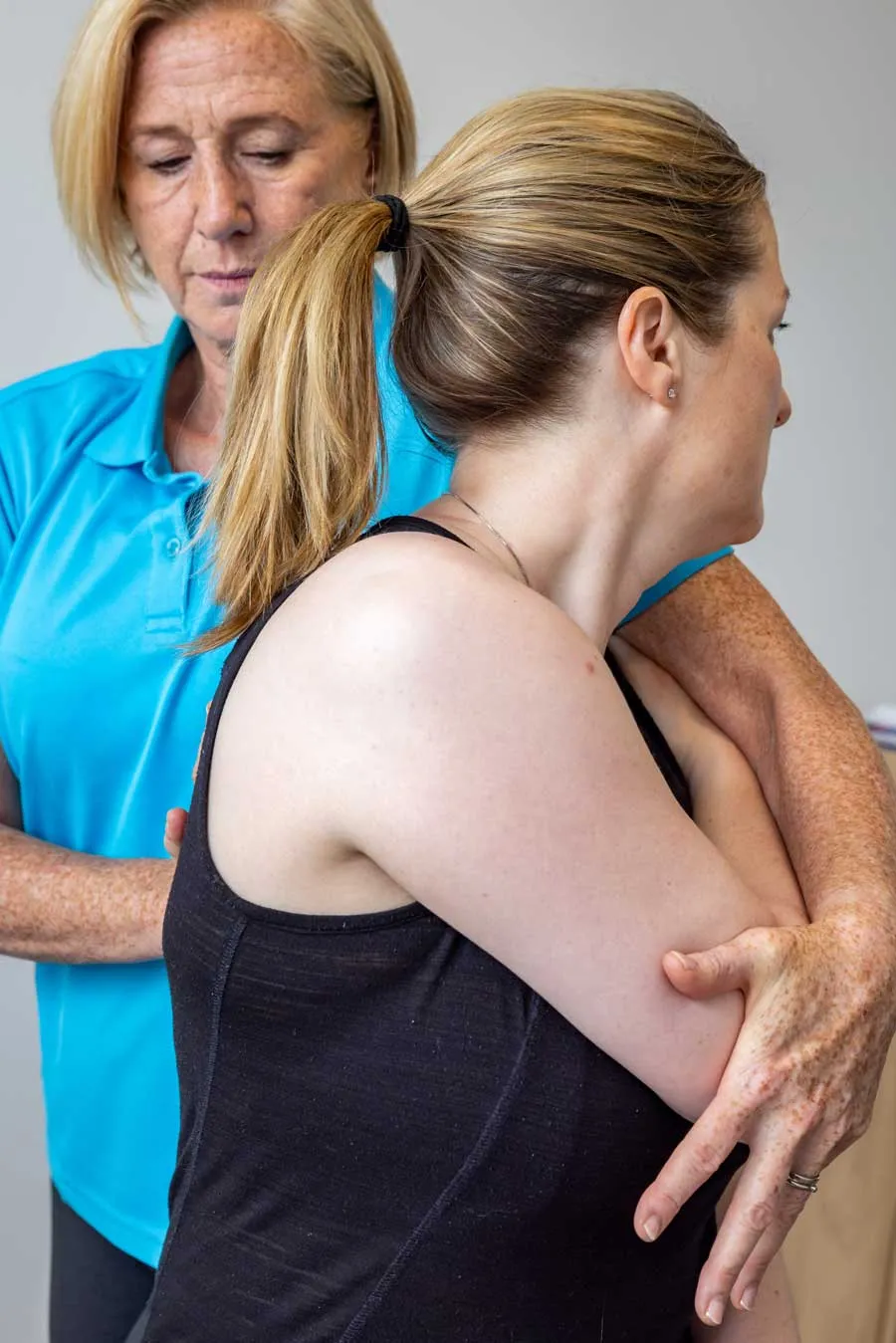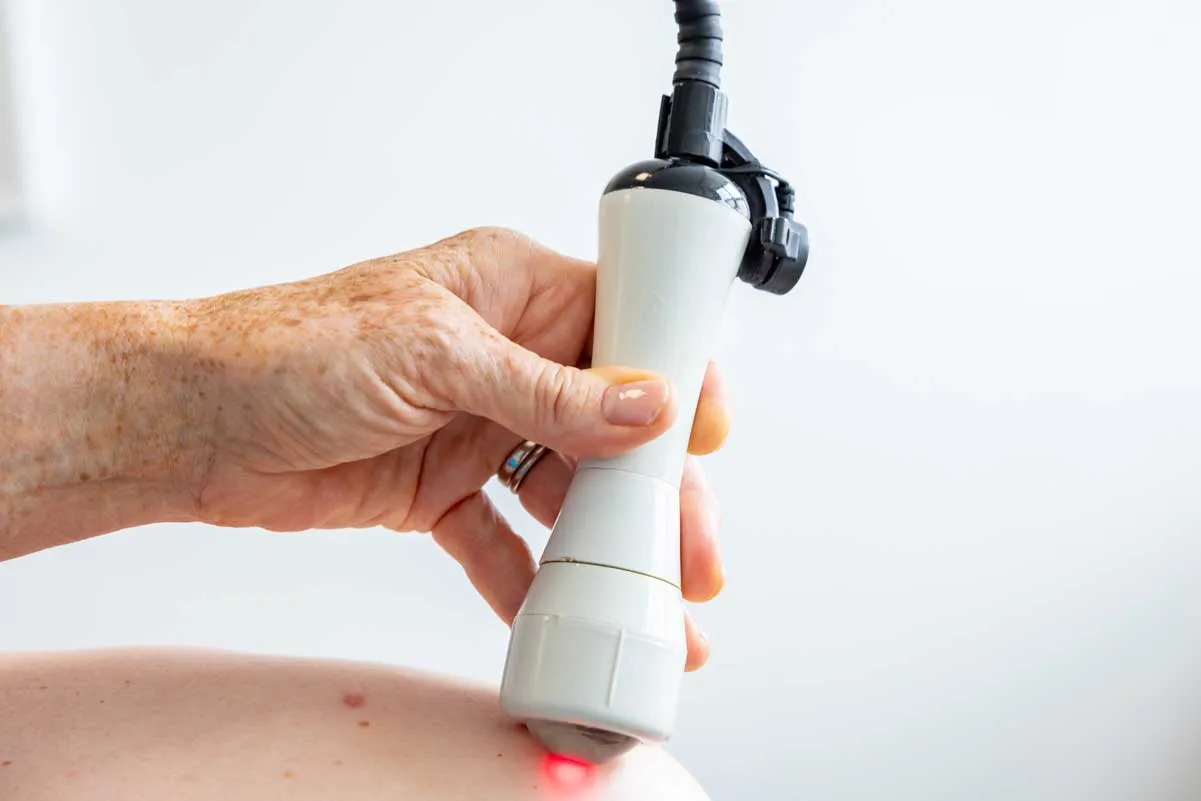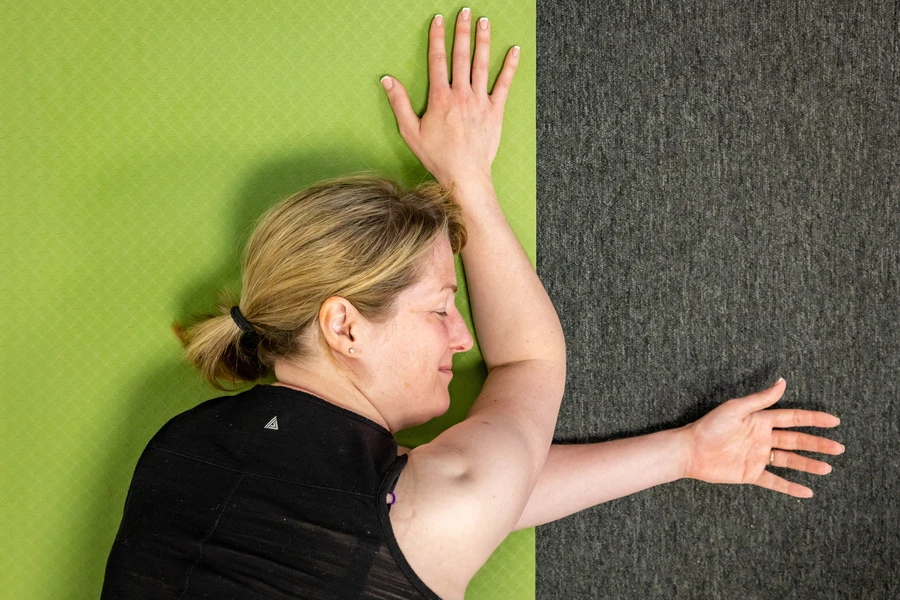The term frozen shoulder is often misused to describe any pain and restriction of movement of the shoulder. More accurately it describes the less common condition of adhesive capsulitis.

The shoulder is a very complex joint and has many structures within it that can cause pain. Imbalance in the way the shoulder muscles (such as the rotator cuff) control movement, trauma and strains to the ligaments and joints from sports or overuse, and the effects of age-related changes are normally easily treated with Osteopathy, physical therapy and acupuncture.
Frozen shoulder is also known as adhesive capsulitis. Frozen shoulder is usually caused by inflammation. The capsule of the shoulder joint has ligaments that hold the shoulder bones to each other. When the capsule becomes inflamed, the shoulder bones are unable to move freely in the joint and the joint becomes very restricted and painful. Symptoms of adhesive capsulitis can last for up to 18 months, although they normally fully resolve eventually.
Most of the time, there is no clear cause for why a frozen shoulder develops, though risk factors include:
Shoulder pain can also be referred from other areas eg, the neck. Your practitioner will take a full history and examine the shoulder to determine the cause of injury and the tissue causing symptoms.


The treatment of a frozen shoulder normally requires several approaches. Anti-inflammatory medication can give some relief, stretching and mobilisation along with guided exercises can also help improve range of movement and reduce soft tissue tightness. We also employ medical acupuncture and Laser therapy to speed recovery. On occasions patients may need to be referred for a steroid injection. This can be given by your GP or privately through our network of providers we refer to.
At the Osteopaths we aim to reassess regularly to make sure your shoulder pain is resolving so that we quickly pick up and deeper tissue damage that may need more investigation or surgery.